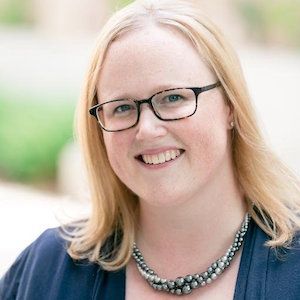It’s been two weeks since I sat, mouth agape, brow furrowed, head shaking in disbelief at what I was witnessing on the television monitors in my newsroom. Reporters from major networks had entered the apartment of San Bernardino shooting suspects Syed Rizwan Farook and Tashfeen Malik and were rifling through its contents — on live television.
 Some asked questions about legality, about ethics, about souls. But what concerns me most are those who didn’t ask questions at all.
Some asked questions about legality, about ethics, about souls. But what concerns me most are those who didn’t ask questions at all.
Viewers may have noticed something was off, but couldn’t pinpoint it. Others likely tuned out with quiet disappointment. Still others saw this happening on screens across the country and thought this was something “we” were proud of. “We,” you know, “the media.”
Even now my face gets hot with embarrassment and sadness and anger as I let that last thought settle. But it’s anger that I’ll redirect this year toward positive action.
We are at a turning point for public trust of the media. In 2016, it’s our responsibility to earn it. Demand change of each other and champion organizational and individual growth through transparency, collaboration, community, and connection.
Transparency: Humans trust humans who speak to them like, well, humans. Say what you know and how you know it — plainly. Most importantly, when you don’t know anything, or can’t confirm anything yet, or something has changed, say that too.
Collaboration: Consistent, clearly-presented data is helpful – and fosters trust. One of my favorite recent examples of this is an effort to “end the elections arms race” by NPR and The New York Times. As NPR’s David Eads explained to Poynter, “We should be innovating and competing over how to deliver our audience election coverage, not over who can build the fastest and most accurate results data parser.”
Community: People trust information that truly includes them. Two organizations recognizing the significant value of this concept are Jennifer Brandel’s Hearken and AIR’s Localore: Finding America. Brandel goes so far as to call what Hearken does “public-powered journalism” — I don’t think information gathering can be more inclusive than that.
Localore: Finding America takes trust in another direction by acknowledging that media doesn’t reach all parts of our country well — and then strives to tell stories with and for communities that may be typically ignored. When someone’s experiences are validated because a journalist wants to help them share their story with world for the first time — that experience with journalism is a foundation of trust that reverberates.
Connection: Deep knowledge + accessible presentation = empowerment and trust. Academic experts are not always the best people to directly explain their work to the audience who may need to know the information most. What if journalists helped with this gap between deep knowledge and those who need it in a more active role? The Conversation aims to do just that — helping academic research that might otherwise be buried in academia reach people beyond journal-readers and doctoral students. What’s more, their work is free to read and republish under Creative Commons.
Through these examples, and many others I haven’t included here, we prove all the time that we can be so much more than “the media.” In 2016, let’s take every opportunity to be transparent, collaborate, connect, and build community to earn an evolving public definition.
Kelsey Proud is digital innovation editor of St. Louis Public Radio.